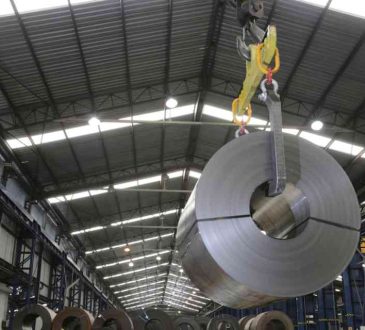How to Create a Resilient Culture and Agile Teams

The vast majority of workers struggle with resilience. But by making their teams more resilient, business leaders can boost retention, employee job satisfaction, and productivity. These three tips can help any team embrace agility.
The findings of a global study by the ADP Research Institute painted an interesting picture of COVID-19’s impact on the workplace. Specifically, the report found that worldwide employee resilience is low — a scant 15% of workers worldwide said they were highly resilient.
While currently low, this figure does not have to be the norm. With resilience, companies can pivot instantly and better manage failure and unexpected change. The need to pivot is a must-have within any organization, and resilience helps see companies through any variety of shifts.
Build Resiliency Now to be Better Tomorrow
Arianna Huffington chose “resilience” as 2020’s Word of the Year, calling it “the vaccine we already have — it’s our immune system for the inevitable ups and downs of life. … Resilience allows us to tap into deeper resources in ourselves we didn’t even know we had, not just to overcome the obstacles but to be transformed by them.”
As most leaders would agree after COVID-19 changed everything, resilience is a foundational value that can benefit any company. Resilient company cultures typically have higher retention, happier employees, and standout staff satisfaction scores. Plus, a BetterUp Labs study found that resilient leaders are more likely to engage in inspirational behaviors, such as providing creative perspectives to help solve problems or encouraging others to contribute and participate meaningfully.
Business leaders might have great intentions of increasing resiliency, but they might not be sure how they can achieve those goals. Here are three great places to start:
- Define Structure and Roles.
About 86% of founders surveyed in a study by The Alternative Board said company culture influences productivity. To that end, build a resilient culture that helps everyone know their exact responsibilities.
Everyone at our company knows their responsibilities and is expected to deliver results. Internally, each person has to drive a different metric, meaning there is a clear delineation of who does what and how those actions contribute to the greater good. That kind of clarity serves us well, especially when things get tough.
Resilient cultures have a clear view of all roles, responsibilities, and hand-offs to put everyone in a position to be their absolute best. With a clear understanding of one another’s expertise, employees can coordinate with each other on projects and make decisions on the fly. - Encourage Creativity.
According to research published in The Journal of Positive Psychology, creative endeavors help people deal with the emotions brought on by stress. During times of uncertainty, enable employees to think outside the box while steering your company through any rough patches.
Out-of-left-field thinking is an invaluable part of our culture, which is why problem-solving is a regular part of our workplace routine. We collectively solve a riddle each week, which gives everyone a glimpse into how their colleagues think. Plus, it allows us to see how to get the best out of our team members in good times and bad. - Model Inclusion and Diversity.
The most adaptable workforces become that way through osmosis. That is, resilient companies adopt coping strategies from a diverse array of voices.
To that end, keep diversity and inclusion in mind when building a team. A Sapling study found that 64% of job seekers value diversity and inclusion, yet only 55% of respondents think companies actually prioritize those initiatives.
Resilient cultures acknowledge the diversity of their teams and work to understand, accept, and maybe even identify with those differences. More than that, those companies see the value in differences and use them as a way to improve internal cultures and fortify them for the long haul.
At my company, we have open conversations, and we listen (and expect) diverging viewpoints. Differences in opinion aren’t dramatic — they’re just part of our everyday experiences. This allows us to be open about our ideas and opinions, which helps us embrace a diversity of perspectives.
Resiliency leads to better functioning teams and leaders. A CV-Library study revealed that 72% of companies value employees who exhibit adaptability while 59% look for resilient employees. Both traits build the kind of character and fortitude that benefit organizations in the long run.
Business leaders must do whatever they can to make their teams more resilient. Not only will it encourage retention and employee job satisfaction, but it also positively affects team productivity.
Written by Christine Alemany.
Add CEOWORLD magazine to your Google News feed.
Follow CEOWORLD magazine headlines on: Google News, LinkedIn, Twitter, and Facebook.
Copyright 2024 The CEOWORLD magazine. All rights reserved. This material (and any extract from it) must not be copied, redistributed or placed on any website, without CEOWORLD magazine' prior written consent. For media queries, please contact: info@ceoworld.biz









